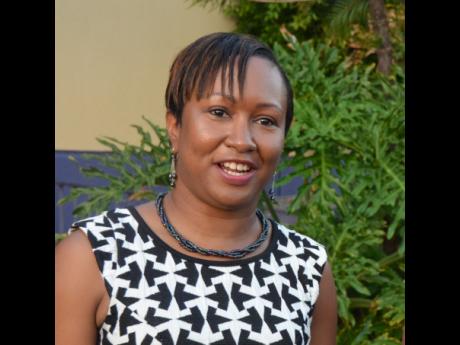Humanities Matters | Relevance of Humanities in today’s world
Recently, there have been reports of challenges to humanities' courses and programmes worldwide. Real or perceived, the humanities - languages, literatures, history, culture, philosophy - are declining in social status among the general populace. There is the perception that there are few economic benefits in pursuing the humanities.
This is occurring just when we most need the insight and knowledge offered from the study of these disciplines. Earlier this year, actor and musician Donald Glover, using his stage name Childish Gambino, released a song and music video called This is America, which explored themes such as racism and institutional violence and took a swipe at societal obsession with social media and fleeting dance fads.
Unfortunately, some responses to the video and its amusing parodies reveal a failure to comprehend its significance, much less reflect on the overall institutions and structures of power in our society that it critiques.
Here, the humanities, in this instance, a specific song, can be seen as a kind of mirrored lens. Through this mirror, as a society, we see ourselves reflected back to us. In our literature, popular music, theatre, and films, we see ourselves nuanced, parodied, and dramatised. The humanities force us to probe ourselves and our society a little more deeply by reviewing the past, art and literature, movies and theatre.
Euphemisms
It is not uncommon in Jamaica to hear terms such as 'pretty' hair or 'high' colour. As a child, I wondered, if there was a 'pretty' hair, was there an 'ugly' hair? What was a 'low' colour? Indeed, there were euphemisms for 'ugly hair'. These included 'tough head'; 'picky picky head'; 'caya head' and others that described the natural curly African texture that most Jamaicans possessed.
Through high school history I understood why what was called 'pretty' hair and 'high' colour held such value in our society. I understood and interrogated Jamaican and Caribbean societies' internalised negativity and ambivalence with things 'African' or black. This knowledge allowed me to be more critical, more objective, and more thoughtful about the society of which I was a part.
From Montego Bay High School, I continued to study history at Montego Bay Community College and later, in the Department of History and Archaeology, Faculty of Humanities and Education, University of the West Indies, where I studied first for an undergraduate degree and afterwards a PhD.
As a student of history, I acquired a number of valuable skills that included the ability to identify and spot patterns that aid decision making; but also, critical thinking skills. Critical thinking skills were supported by research skills and the ability to explore and judge multiple perspectives before taking a decision. Such skills are required and highly valued for such tasks as report writing, but also more broadly in management, government institutions, the media, law and law enforcement, and the sciences.
It is unsurprising that several CEOs worldwide started their college careers with humanities programmes. Howard Schultz, Starbucks CEO, has a degree in communications; Michael Eisner, former Walt Disney Company CEO has a B.A. in English Literature and Theatre; Jack Ma, Alibaba chairman, has a BA in English; J.K. Rowling, writer of the Harry Potter series, has a degree in French and the classics; noted director Steven Spielberg has a degree in English; and Susan Wojcicki, the CEO for YouTube, has a BA in History and Literature.
In an interview with George Anders of Forbes Magazine published July 29, 2015, Stewart Butterfield, co-founder and CEO of Slack Technologies, valued at US$2.8 billion at the time, stated: "Studying philosophy ... I learnt how to write really clearly. I learnt how to follow an argument all the way down, which is invaluable in running meetings."
VALUABLE
Humanities degrees are valuable, and so are humanities courses, for the insight that they provide into people and their socio-historical and cultural context. A doctor, for example, must be able to disseminate knowledge in the context of the culture and be mindful of socioeconomic factors that may affect his patient's ability or inclination to follow instructions. Anecdotal evidence indicates that this is dangerous if not respected.
It is because as individuals we must exist within the context of history and culture that we have created at the University of the West Indies foundation courses, one of which is Caribbean Civilisation.
A course that takes a revisionist approach, it provides the historical and cultural milieu in which the Caribbean developed. Many of our current social and economic issues are rooted in decisions and actions taken in the past.
In the Institute of Caribbean Studies (ICS), my current home, Cultural Studies and Applied Cultural Studies are our areas of research, teaching, and focus. The ICS houses two majors - the Major in Entertainment and Cultural Enterprise Management and the Major in Cultural and Creative Industries - together with Minors in Reggae Studies, Rastafari Studies, Cultural Studies and Music.
Decidedly interdisciplinary, ICS programmes offer students' critical thinking, research, and writing skills together with knowledge of management, policy making, and entrepreneurial skills that allow them to tackle the ever-expanding cultural and creative sectors. Some of our former students have gone on to shape policy in entertainment, tourism and culture. They have started thriving businesses in food, tourism, entertainment management and fashion. What I am most proud of, though, is that they approach their post-graduate work lives with a great degree of self-knowledge and a keen sense of the dynamics of power and culture in which they operate. In this era of social media manipulation, we need critical thinkers in every area of work. The humanities are important and practical. They matter.
- Dr Nicole Plummer is a lecturer in the Institute of Caribbean Studies, the University of the West Indies, Mona. This article is one in a series that seeks to promote and highlight the impact of the arts and humanities on an individual's personal development and career path. Please send feedback to fhe@uwimona.edu.jm.


